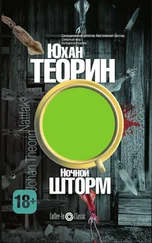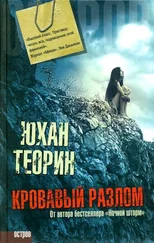The interpreter checks Aron’s passport. ‘He’s only thirteen years old...’
‘Yes, but he’s big and strong and hardworking.’
One of the guards shows Sven a picture, a portrait of a man with sharp eyes, his chin raised. ‘Do you know who this is?’
‘Your leader,’ Sven replies.
‘What’s his name?’
Aron hears Sven say an unfamiliar name without the slightest hesitation, and the guards nod with satisfaction.
Finally, Sven gives the men some of their dollar bills. That does the trick. Their passports are stamped, travel documents are issued and they are allowed into the new country.
Sven and Aron remain in the city for three days; they stay in a small hotel near a big railway station and wander the wide, crowded streets. Aron hears lots of foreign languages but doesn’t understand a single word. Everyone around them appears to know where they are going, but Sven seems somehow lost. In the cramped room, his mood deteriorates, and he hits Aron several times.
In the evenings he goes out, and is gone for hours. Aron can only wait by the window.
On the second evening, Sven is much more cheerful when he returns. Everything is arranged; he has met someone who speaks Swedish.
‘We’re moving on,’ he tells Aron. ‘There are lots of Scandinavians in the forests in the north. They’ve got work for us up there.’
Aron would like to spend longer in the city, but he has no say in the matter.
They leave by train the following day. The concrete buildings disappear, the countryside takes over and they travel north through a green and brown landscape of vast plains, virgin coniferous forests, wide rivers and immense lakes.
The train is packed with optimistic workers, all equipped with their own tools — saws, pickaxes and spades.
Sven and Aron are with them in the third-class carriage. The dollar bills are almost gone. They have hardly any food, but at one end of the carriage you can buy steaming-hot tea. Everything else on the train is freezing cold.
But Sven keeps his eyes firmly fixed on the route ahead, one hand resting on his spade.
It was almost twelve o’clock by the time Jonas got back to Villa Kloss. He had only pretended to call home from the Davidssons’ house, just to appease Gerlof. No one in his family knew where he had spent the night. If he gave the game away, Mats and their cousins would probably chuck him off the rocks.
On the way home he had gazed out across the bay, but there was no sign of any ships and no dead seamen had floated ashore. The sun was shining and the breeze was warm. People were swimming and sunbathing by the jetty as if it were an ordinary summer’s day, but Jonas’s heart was pounding.
He had reached Villa Kloss. Might as well go straight in.
He slid open the glass door of Uncle Kent’s house, expecting to see everyone gathered around the long dining table: Uncle Kent, Dad, Mats and the cousins, all worried and with lots of questions, but no one seemed to have noticed his absence. They weren’t even there.
Only Paulina was around, standing in the kitchen, stacking dishes after the party. Everyone else was probably still in bed, or else they’d gone off to the Ölandic. Jonas had a drink of water and went over to his chalet. On the way he met Mats and Urban, both wearing green shorts and sunglasses. They were carrying two racing bikes.
‘Hi, bro.’
‘How’s things?’ Urban said.
‘Fine,’ Jonas replied.
Mats stopped and spoke quietly. ‘We told Dad you stayed over with a friend last night. That’s what you did, isn’t it?’
‘Well, yes, kind of... I slept in a boathouse.’
‘Good... I should think that was a lot more fun than Kalmar. The film was crap.’
Jonas nodded and thought about dead men on the deck of a ship. And then about Africa. He could hear jungle drums pounding in his head, and he just wanted to ring his mum in Huskvarna. Ask her to come and pick him up, take him home.
But he didn’t. He had to stay here; he had work to do.
So when Mats and Urban had cycled off down the coast, he went out on to Uncle Kent’s warm, sunlit decking. The planks were waiting. First of all he had to sand them down, then he would apply Chinese wood oil, which had been ordered specially.
Suddenly, he heard the sound of an engine behind him. Uncle Kent drove in and parked over by the garage. He was holding his mobile phone and seemed to be doing a lot of listening, with occasional monosyllabic responses. He was red-faced and sweaty, and when the call was over he sat in the car, looking out towards the Sound.
Then he shook his head and made another call.
Something seemed to have upset Uncle Kent, but Jonas didn’t want to know what it was. Kent didn’t appear to have noticed him, anyway, he was too stressed — after only a minute or so, he reversed on to the coast road and drove off again.
Jonas looked down at the decking. He was no longer on holiday. The previous evening, his father had shown him what to do. ‘Steady, even strokes, Jonas, and make them as long as possible. Keep your hand moving all the time so that you don’t chip the wood.’
Jonas picked up the sander, switched it on and ran it over each plank. It was hard work. The dirt was ingrained in every piece of wood, and he had to go over each one several times in order to bring it back to its original pale colour.
But it was good to be working; it stopped him thinking. About the man with the axe, and the dying seamen.
After perhaps twenty minutes the glass door slid open.
‘Afternoon, Jonas!’
His father emerged, wearing sandals, shorts and a shirt. He blinked up at the sun and waved to Jonas. ‘Everything OK?’
Jonas nodded. His father went and sat on a sun lounger by the pool and closed his eyes.
Did he have a hangover from the party? Jonas couldn’t tell.
He carried on working, but when he had sanded down two more planks and the sweat was pouring down his back, he took a break. He went over to join his father and sat down on the edge of the pool, dangling his feet in the cool water. Niklas smiled at him, and Jonas asked, ‘Did you see the ship?’
Niklas stared at him, then looked out across the Sound. ‘What ship?’
‘A big ship. Last night.’
‘Not last night,’ his father said. ‘But I have seen a few cargo ships passing through the Sound since we arrived.’
Jonas didn’t say any more about the ship. He sat there for a few minutes longer with his feet in the water, until he had stopped sweating, then he stood up. ‘I’d better get on.’
It was easier now; he had learned how to hold the sander.
After a while he got up and stretched, and saw that he was being watched from the other side of the coast road. A grey-haired man with a white beard and sunglasses was standing on the ridge above the shore, staring at Villa Kloss. He was wearing a red T-shirt, but Jonas couldn’t make out his face. Too far away.
He was standing in the middle of the rocks that had rolled down from the cairn, and when Jonas realized that he went cold all over.
He turned to see whether his father had noticed the man as well, but Niklas was lying back on the sun lounger with his mouth open. He had fallen asleep.
Jonas slowly bent down and resumed his sanding, but when he had finished the plank he looked over at the cairn once more.
The man had disappeared.
The birds were singing at the tops of their voices. Gerlof was sitting in the garden with his hearing aid turned up to full volume, and the song in the bushes rose and fell like a summer concert.
Who needed a gramophone when there were blackbirds? Not Gerlof.
It was early evening, but still warm and calm. The entire day had gone, June would soon be over, and he had done very little apart from doze in the sunshine.
Читать дальше












